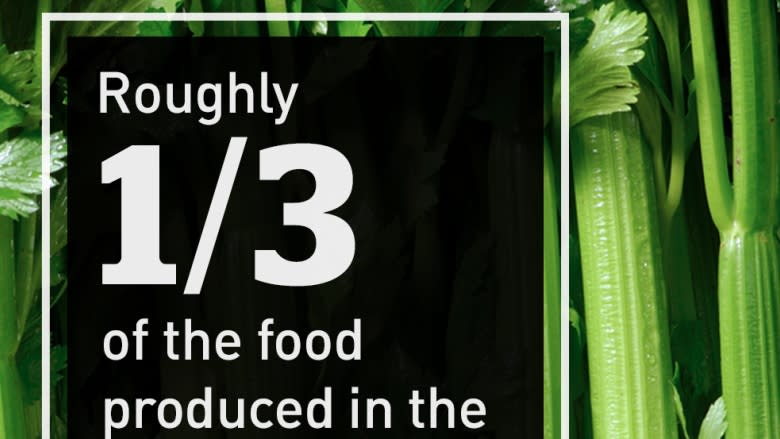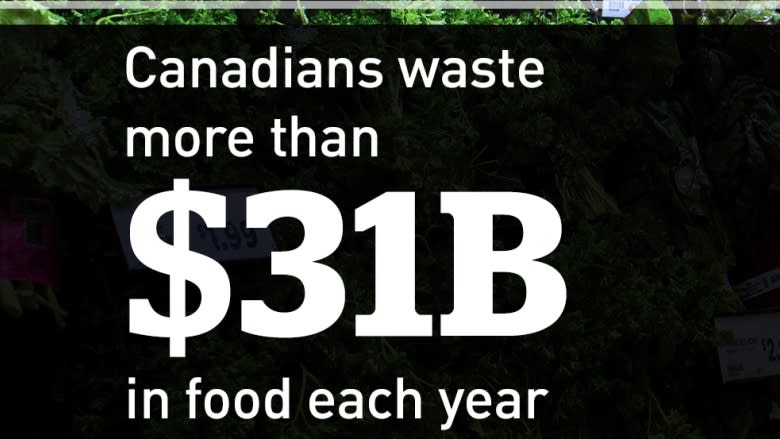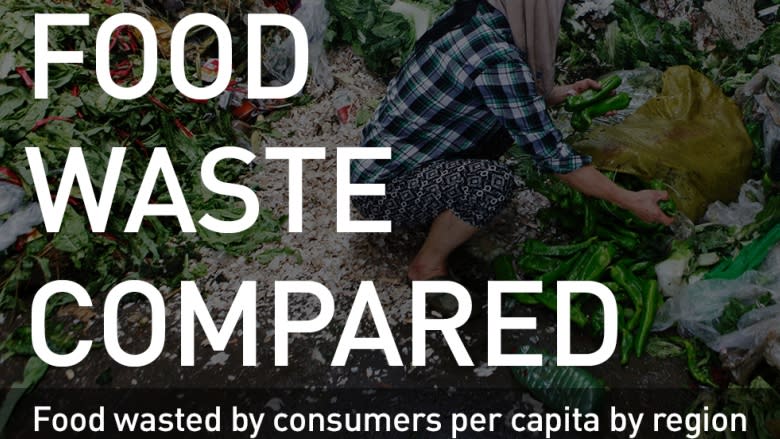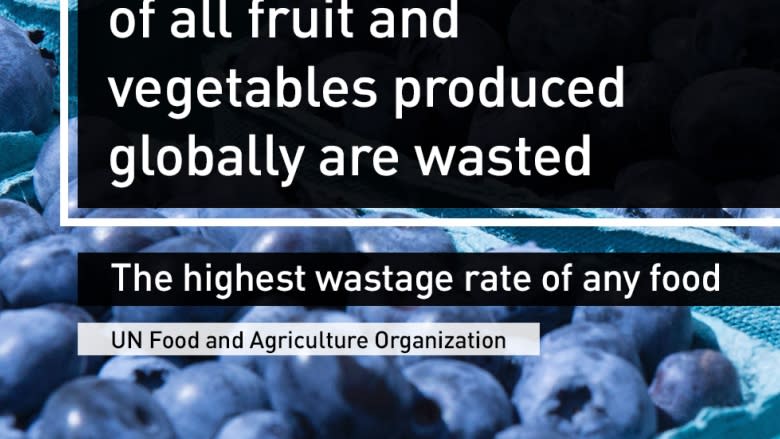Selling unwanted food at a discount, a growing trend you may want to bite into
It's a dirty little secret in the food industry that plenty of goods wind up in the trash. As the world's population grows, so does the pressure to tackle the problem.
This week, Italy passed new measures to curb food waste. It will now be easier for businesses to donate surplus food and easier for customers to request a "doggy bag" in restaurants — currently not a widespread practice in Italy.
There's also an emerging business model that can help take a bite out of food waste. It involves rescuing leftovers and peddling them to consumers at a discount.
Entrepreneurs are taking up the challenge, including Canadians like Caroline Pellegrini in Montreal.
She worked at a bakery for a year and witnessed everything from cakes to sandwiches getting tossed. Their shelf-life was almost up and it was even too late to connect with a charity.
"I felt heartbroken," says Pellegrini. "I thought there must be a more efficient way to deal with this problem."
The issue also came up when visiting her friend's sushi shop after work. Again, unsold food ended up in the garbage.
So Pellegrini quit her job as a project manager for a large marketing firm and set to work on a solution. In March, she launched a phone app called Ubifood.
So far, she's signed up about 5,000 customers and almost 40 Montreal food vendors, including a grocery store.
The businesses upload photos of leftover meals or grocery items they plan to toss but are still good to eat. Customers can pay for many of the items online and pick them up on site.
The items are discounted by 15 to 80 per cent. Ubifood takes a cut of the sale.
"The app lets you save on the food you crave while saving the environment," says Pellegrini.
The UN's Food and Agriculture Organization estimates that each year, roughly one-third of all food produced for human consumption in the world is lost or wasted.
In 2014, consulting firm Value Chain Management calculated that more than $31 billion worth of food is wasted every year in Canada
"It's horrible," says Josh Domingues in Toronto. "It's an international epidemic."
Domingues recently quit his six-figure finance job on Bay Street to create an app called Flashfood.
Similar to Ubifood, it will connect Toronto food vendors selling leftover food at a discount with customers. The app is set to launch within the next month.
Domingues felt he had little choice but to switch careers after his sister, who works as a chef, complained about an epic food waste incident — she was told to throw out $4,000 worth of clams left over from a catering event.
"She was pretty upset," he says.
He did his research and discovered that along with restaurants tossing food, grocers sometimes throw out goods days before they hit their "best before" date.
"There's no easy way to connect these food companies directly to the [consumer]," says Domingues. His app, he explains, will help bridge that gap.
Other businesses are also connecting unwanted food with consumers.
The Loblaws grocery chain recently expanded its Naturally Imperfect line, where it offers up to a 30 per cent discount for blemished and misshapen produce.
The program began in Ontario and has now spread to select Loblaws grocery stores across the country.
Last year, the Daily Table grocery opened in Dorchester, Mass. The store aims to address food insecurity and waste by selling discounted surplus food that's still safe to eat.
And earlier this year, Wefood supermarket opened with much fanfare in Denmark.
Targeting the general public, Wefood sells discounted goods that regular supermarkets have rejected because of factors such as "best before" dates that have passed.
Food nearing or passing its "best before" date may make some Canadians nervous. But the time stamp doesn't determine when an item is unsafe to eat, just when it loses its peak freshness or appearance.
"All that date is is a quality measure. It has nothing to do with health and safety," says Domingues. However, he notes that none of the food sold on Flashfood will have actually passed its "best before" date.
One Toronto restaurant that has signed on with the app is Alex Rei dos Leitoes, a Portuguese eatery.
"I think it's great," says general manager Frank Bento. "No matter how hard you try, there's just going to be some days where you're throwing something out that is perfectly good."
It it proves successful, Domingues wants to make Flashfood available across Canada and eventually expand to other countries.
"If we can build this out the right way, then it's going to be a very good business model and we're going to be able to make a really big global change."
Pellegrini says she would also like to expand her app, Ubifood, to other regions. But even with expansion plans, she believes businesses like hers are just scratching the surface.
She would also like to see levels of government step in and address the growing problem of food waste.
Along with Italy, France also recently passed a lawbanning large supermarkets from tossing unsold food. Instead, it must go to charities or to farms that can use it for animal feed or compost.
"This is how we're going to solve an issue like this one," says Pellegrini. "I feel here we're lagging behind."

 Yahoo Finance
Yahoo Finance 



